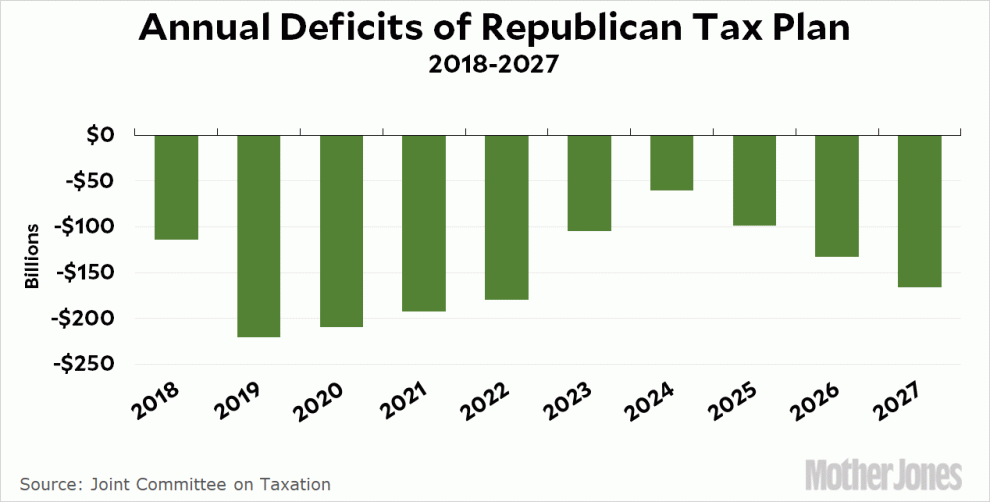
Huzzah! Jim Puzzanghera and Lisa Mascaro of the LA Times have finally written a story explaining the obvious: the Republican tax plan is doomed unless it’s deficit neutral in 2028 and beyond. Which it isn’t. In fact, it’s worse than I thought: they report that even a temporary business tax cut would probably increase the deficit past 2028 and therefore violate the Byrd Rule. So what are Republicans planning to do about this?
Senate Finance Committee Chairman Orrin Hatch (R-Utah), who drafted the Senate bill, acknowledged the Byrd rule challenge. “The House has to understand that we have to comply with the Byrd rule…I think they understand that we have difficulties,” Hatch told reporters Thursday. Asked how he would resolve the problem, Hatch said, “You’ll have to wait and see. We’re working on that as we speak. It’s not an easy thing.”
I dunno. Republicans can produce their own outlandish revenue estimate using dynamic pixie dust. They can ignore the Byrd Rule. They can magically create a hundred-year window so that deficits only count after 2118. They could tack on a big tax increase in 2028, on the assumption that it will just get repealed before it ever takes effect. In practice, however, all of these things are just a hair away from killing the filibuster, and there are at least a few Republicans who won’t vote to do that.
So what are they planning to do?

















